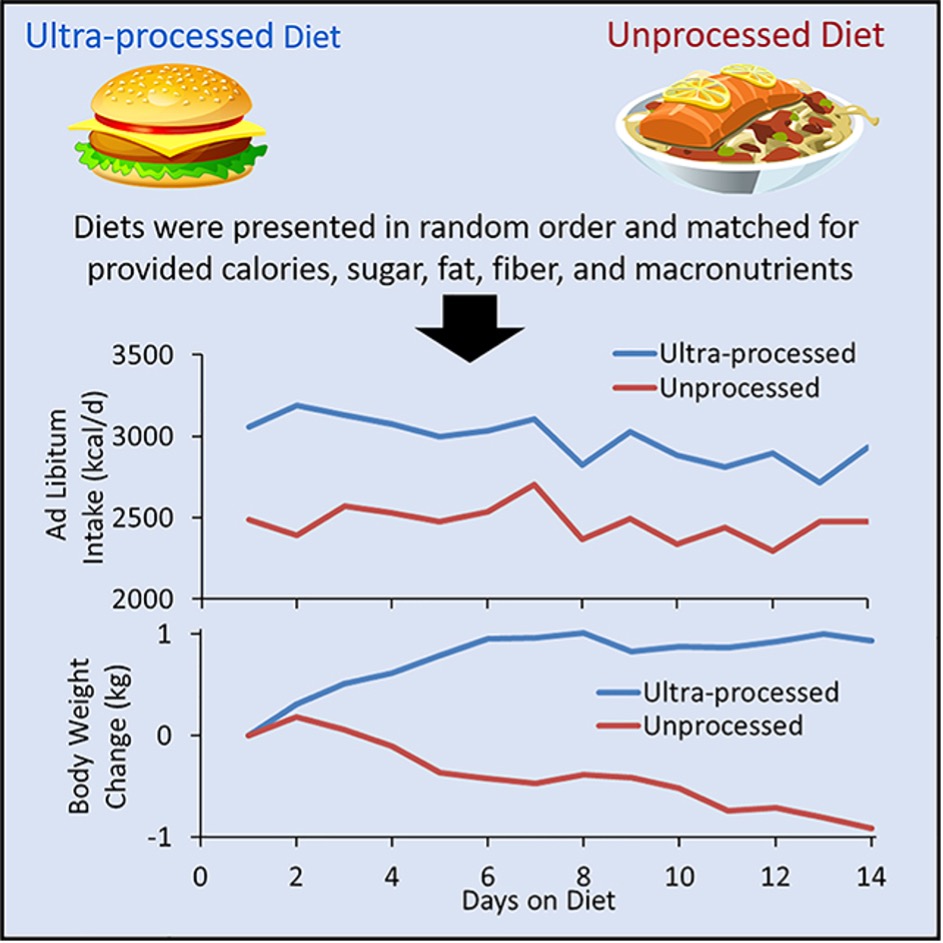
The results are in. This (2019) study involved 20 adults following either an ultra-processed (UPF) or unprocessed diet for 2 weeks at the NIH Clinical Centre. This was followed immediately by 2 weeks of the alternate diet. The diets were matched for nutritional composition: calories; energy density; macronutrients; sugar; sodium and fibre and participants were free to eat as much as they liked.
Despite composition matching, subjects on the UPF diet consumed an average of 508 extra calories per day, comprising more carbohydrate and fat, but not protein. Participants gained more weight during the UPF diet, an average of 1kg, and lost weight during the unprocessed diet. This implies that there is something about the processing itself which causes a metabolic issue.
Other interesting points to note were:
During the UPF diet
• The eating rate was faster
• Sodium consumption increased
• To compensate for the lower fibre level and match fibre intake for both diets, beverages with dissolved fibre were given
• Body fat mass increased
During the un-processed food diet:
• Appetite suppressing hormone increased
• Hunger hormone decreased
• Total cholesterol decreased
• Inflammation markers decreased
• Fasting glucose and insulin levels decreased
One thing is clear. Whilst there is much conflict about which diet is the ‘best’ the whole world seems to agree that avoiding processed foods is a good thing.

Refs: Hall, K. D. (2019) Ultra-processed diets cause excess calorie intake and weight gain: An inpatient randomised controlled trial of ad libitum food intake. Cell Metabolism; 30(1) pp. 67-77. e3. https://www.ncbi.nlm.nih.gov/pmc/articles/PMC7946062/
#nutrition #eastbournenutritionist #UPF #realfoodheals #weightlosshelp




